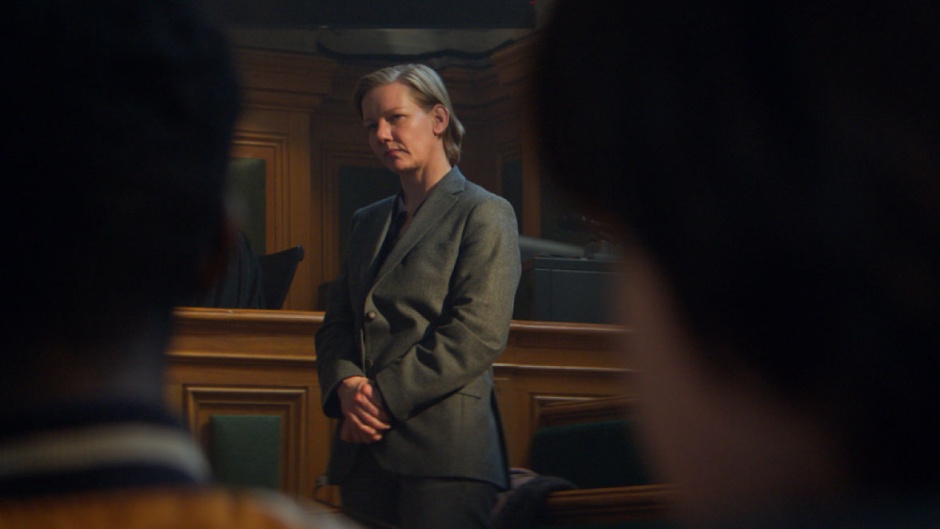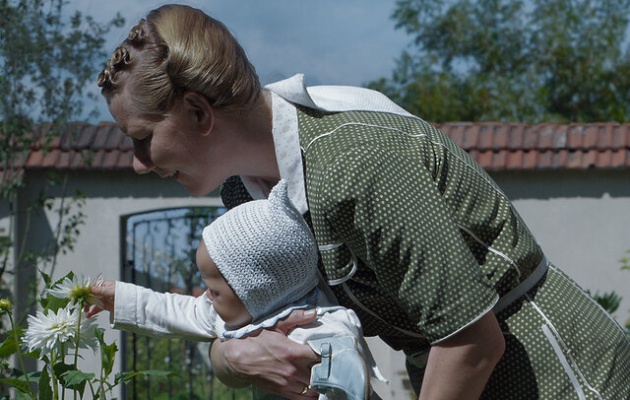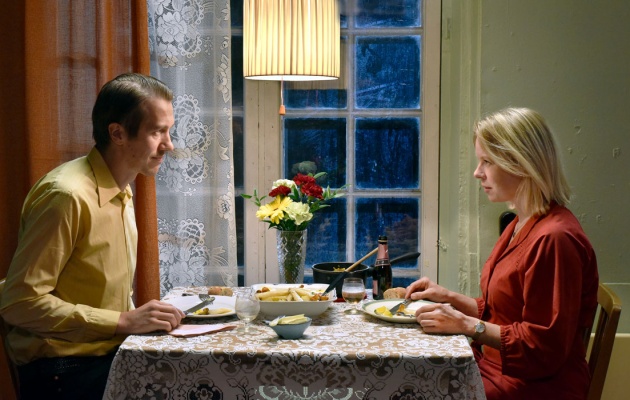What the recent films ‘Anatomy Of A Fall’, ‘The Zone Of Interest’ and ‘Fallen Leaves’ tell us about marriage.
 A scene of Anatomy Of A Fall, by Justine Triet.
A scene of Anatomy Of A Fall, by Justine Triet.
I have never been comfortable speaking of marriage as “sacred”. All the sacramental connotations of the expression are confusing to me in the light of the reality of life as a couple. For if there is one thing that marriage reveals to us, it is precisely the impossibility of saving ourselves.
This is the complex reality that director Justine Triet describes so well in Anatomy of a Fall, a film with several nominations at the Oscars. She writes the screenplay with her husband, Arthur Harari, and together they ask an interesting question: what would happen if our marital life were put on trial? What would the jury hear if they recorded your arguments with your partner? What would public opinion say about your marriage? Who would be guilty and who would be innocent?
These questions, of course, would never lead to a just verdict, but rather to the cruel dance that we witness in this film, the crashing “fall” into prejudice, reproach and the painful revelation of the heart’s darkest intentions.
[destacate]What would the jury hear if they recorded your arguments with your partner? What would public opinion say about your marriage?[/destacate]Intentions as secret and lurid as those hidden by Harry Powell when he asks for his fiancée’s hand in The Night of the Hunter (1955), the only film directed by Charles Laughton, inspired by the macabre tale by Davis Grubb. Last week, when my wife and I celebrated our sixth anniversary, we watched together this classic film that narrates the odyssey of two children after discovering that the preacher their widowed mother has just married is nothing more than a cruel serial killer.Laughton’s expressionism, recovered from silent films, introduces us to this nightmare in which a handsome Robert Mitchum shows off his lycanthropic hands and a beautiful hymn like Leaning on the Everlasting Arms becomes the howl of evil. However, the most terrifying part of the film occurs on the wedding night when the young widow listens in horror to her now husband: “The end of this marriage is to take care of the two children you already have, not to beget any more... You can get into bed now and stop shivering”.
This banality of evil, so common and accepted in many marriages, reminds us, as Aleksandr Solzhenitsyn said, that the “line that separates good from evil does not pass between states, nor between classes, nor between ideologies, but crosses the heart of every human being”. The Russian historian reflects on this question after surviving the Gulags in which he was imprisoned.

[photo_footer] A scene of The Zone Of Interest, by Jonathan Glazer. [/photo_footer]
[destacate]We laugh at how two lonely souls are inexplicably transformed by a commitment of acceptance and forgiveness.[/destacate]Curiously, Jonathan Glazer presents us with a similar reflection, making a film from the other side, from the perspective of those who dedicate themselves to running concentration camps without many qualms. The interesting thing about The Zone of Interest is that this banality is not only expressed in the ordinariness of those who decided to live with their children next to extermination camps, but also in the coldness and cynicism shown by the Höss couple, again with a great performance by Sandra Hüller as the wife, with that dark and harsh aura that her beauty conveys.
For all these reasons, rather than something romantic, ‘sacred’ or a mere bureaucratic formality, as many consider it today, as a Christian I like to think of marriage as that ‘mystery’ of which the biblical text speaks in the letter to the Ephesians. There is something truly inexplicable about the commitment to join your life to that of another person.
Thus, the lovers in Fallen Leaves are surprised by love and mutual interest in a world plagued by xenophobia, violence and falsehood. Aki Kaurismäki’s film was the great forgotten film of this year’s Oscars, but for me it is the ode to love that our generation needed.

[photo_footer] A scene of Fallen Leaves, by Aki Kaurismäki. [/photo_footer] The film’s title comes from a chanson turned jazz standard, Les feuilles mortes, which speaks of the longing for true love. Kaurismäki’s proletarian romance seems to yearn for that love, and not in a sentimentalist way. Let’s not forget that this is a Chaplinian comedy. As in City of Lights (1931), we laugh at the absurdity of love, at how two lonely souls are inexplicably transformed by a commitment of acceptance and forgiveness.
[destacate] Marriage by itself cannot save anyone but invites us to a cosmic dance[/destacate]For the director, this compromise is a way of escaping the consumerism that plagues relationships in our context. Is this subversive element that gives dignity to a woman who forgives an alcoholic man that has prevented this film from being a finalist for the Academy Awards?
I find marriage a mystery, subversive, in that it is “the union of two sinners called to forgive”, as José de Segovia tells us. As you can see, there is nothing romantic about that, but it captivates many of us, for that mystery speaks to us of another.
Marriage by itself cannot save anyone but invites us to a dance, a cosmic dance that always knocks at the door in the autumn of life and reminds us that the flowers will not be dead forever because there is One who has risen.
Daniel Sazo, psychologist and communicator in Sevilla, Spain.

Las opiniones vertidas por nuestros colaboradores se realizan a nivel personal, pudiendo coincidir o no con la postura de la dirección de Protestante Digital.
Si quieres comentar o